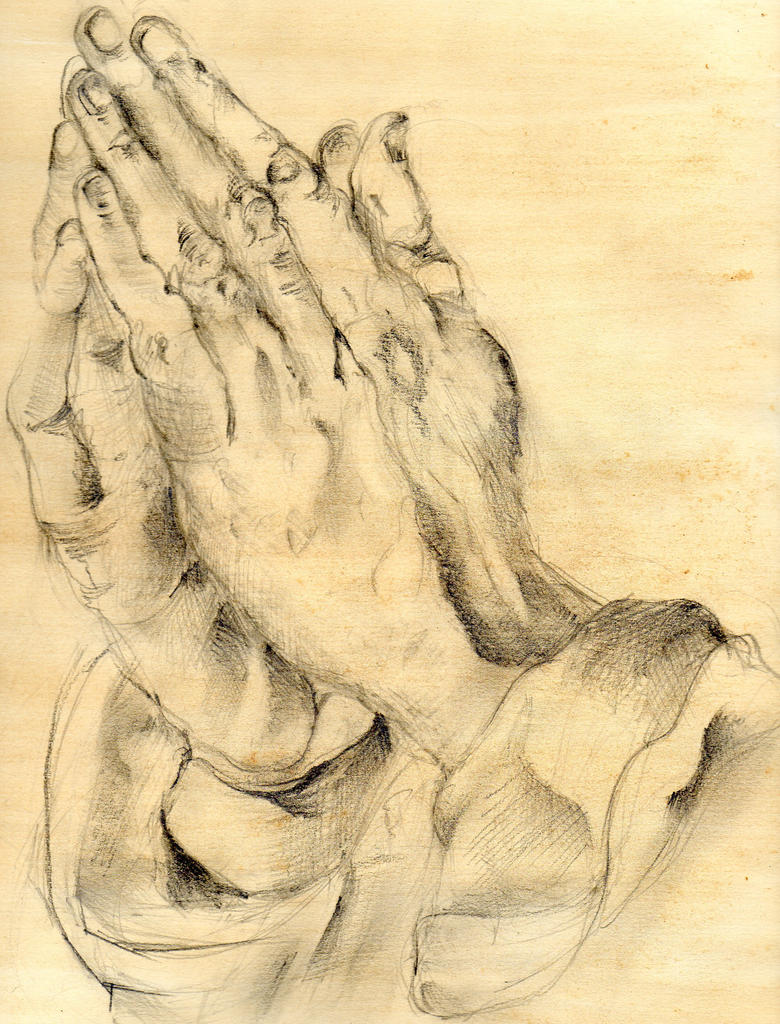Having had a couple family weddings in the last year, I am familiar a bit with staged photographs. It is clear from what I have seen that hands remain a problem for folks. What to do with them, that is. I still recall my mother telling me as a boy to get my hands out of my pockets. I wish a few folks on those photos had heard her voice and remembered what she said. We are often in a quandary over what to do with our hands -- do they belong in our pockets, at our sides, clasped. . . where do they go? I know a few folks who should probably put their hands in their pockets no matter what my mom would say. They are dangerous hand talkers and their hands are literally all over the place -- all over you if you are not quick!
We say that idle hands are the devil's workshop. Speaking again of pictures, how many shots have been spoiled by someone's lame attempt at humor and some finger horns placed above somebody else's head? Hands can get us into more than a little trouble. Ask anyone who has been caught red-handed, so to speak, with the goods they did not pay for!
When someone is not so mechanically inclined, we often described them as unhandy while the one who does well with tools is called a handy man. Hands are good things even if they sometimes get us into trouble. No where are we more troubled with what to do with our hands than in worship. Even the pastors sometimes find themselves awkwardly trying to figure out what to do with hands that seem either out of place or uncomfortable no matter how you hold them. It is one of the reasons I long ago went to the classic fingers and palms touching pose of prayer for all those moments in the liturgy when the place of our hands is left unspecified. Without this practice it is a great temptation to either organize things (hymnal, bulletin, etc...) or wring my hands unconsciously. It is a small discipline to keep them together and focus on other things. I wish more of us felt the need to solve the problem of what to do with our hands. Some of us feel the constant need to do something with them -- anything -- and it is nothing but distracting for those folks around us.
Often we might describe someone as working with their hands. My dad certainly did this. He was a plumber, electrician, and HVAC man who owned a hardware store for 58 years. He worked with his hands though not only his hands. We as Christians also work with our hands. Our hands joined in prayer symbolize part of the work of the baptized, our calling or vocation. We are called by God to pray not only out of need but out of concern for the people and things of value to our world. Prayer is part of the baptismal vocation, the right use of God's name is, after all, to call upon Him in prayer, praise, and thanksgiving. The children of Israel may have lifted hands in prayer, we fold them as we endeavor to so the same thing -- to pray.
Emotions find their way into our hands -- from the fist gripped in anger or fear to the open palm extended in welcome to dancing hands of a happy heart. You see this also in the way pastors hold their hands at certain points in the Divine Service -- extended, folded, uplifted, etc... I guess I am just old fashioned enough to wish that more pastors were taught to fold their hands in the classic position of prayer throughout the liturgy. Hands can be distracting. If it is a good discipline to teach our children, it is good enough for us to practice also. Hands give us subtle and some not so subtle messages. It is good when our hands before us reflect the posture of heart and mind -- especially within the Divine Service.
1 Timothy 2:8 - I will therefore that men pray every where, lifting up holy hands, without wrath and doubting. Psalm 63:4 - Thus will I bless thee while I live: I will lift up my hands in thy name. Luke 24:50 - And he led them out as far as to Bethany, and he lifted up his hands, and blessed them. Ezra 9:5
- And at the evening sacrifice I arose up from my heaviness; and having
rent my garment and my mantle, I fell upon my knees, and spread out my
hands unto the LORD my God. . .

I concur about folding hands, as pictured, as the default hand posture in the Holy Liturgy. As a Roman Catholic I was taught to "fold your hands" whenever I prayed, and the discipline tool. I have a photograph of myself at my First Holy Communion with hands folded in white shirt and tie. A genuine cherub.....NOT.
ReplyDeleteDuring the Liturgy I typically fold my hands and have had folks tell me that they appreciate my doing so at the altar. I am very guilty of being a hand talker during the sermon, and in my teaching, and confess it bleeds over to my conversations, especially if I am "on a roll" so to speak.
Having folded hands encourages me to focus on Christ while presiding, not what the acolyte is doing or whether the ushers are doing their job, or lately, if the "sound technician" has the right slide on the screen so the Liturgy can be participated without having to resort to paper....hey, that might be a good thing about PowerPoint slides....NAH!